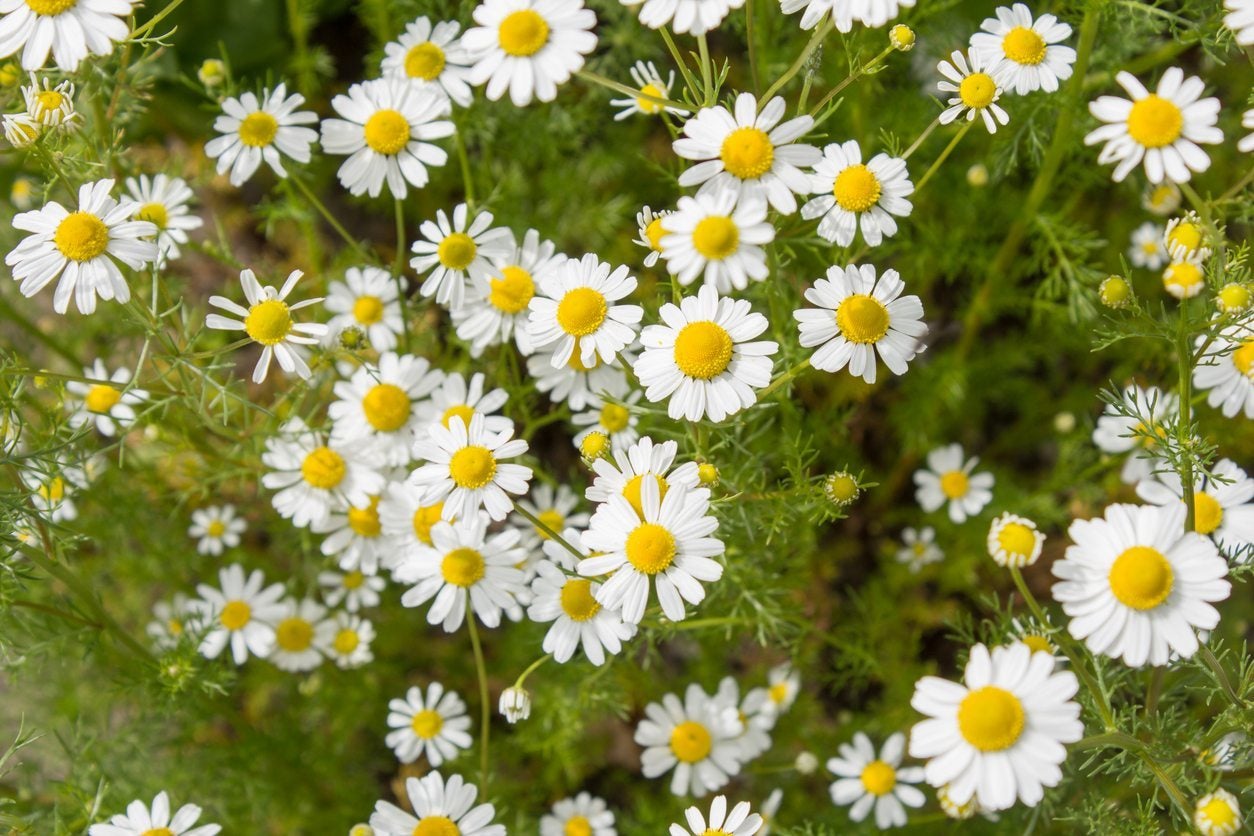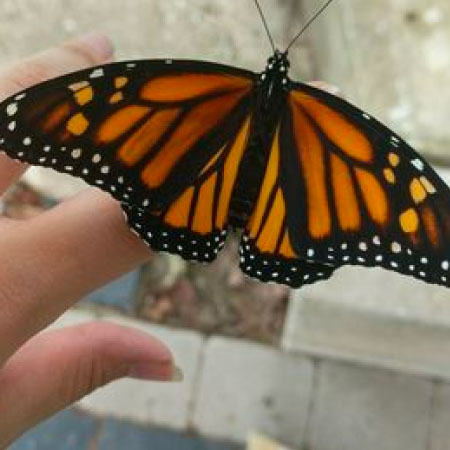Chamomile Not Flowering: Why Won’t My Chamomile Bloom


Sign up for the Gardening Know How newsletter today and receive a free copy of our e-book "How to Grow Delicious Tomatoes".
You are now subscribed
Your newsletter sign-up was successful
Chamomile is an age-old herbal remedy for many human ailments. It is used as a mild sedative, to reduce stress. It is used to treat wounds, acne, coughs, colds, and other illnesses. It is also used in beauty products. Chamomile is not only grown in the garden for its health benefits to humans, but also for how it benefits plants grown nearby. Chamomile is usually the go-to remedy for so many things, but what can you go to when it is a chamomile plant that needs a remedy – for example, how to make a chamomile plant flower if it’s not.
When Does Chamomile Bloom?
Chamomile seeds can be scattered over almost any bare soil and within a week or two the seeds will germinate, and new plants will sprout up. In fact, chamomile grows so quickly and easily from seed that one chamomile plant can quickly turn into hundreds of chamomile plants. Chamomile plants have such a tendency to self-sow that they may even pop up in the cracks of sidewalks. In six to ten weeks after germination, chamomile plants will generally be in full bloom and continue to produce new blooms right up until frost covers the area. These blooms are harvested throughout the growing season for healing and relaxing teas, or to be used for skin and hair care. Many gardeners will leave a few blooms on the plant to produce new seed for future plants in the garden. However, if your chamomile is not flowering, you won’t have much to use in herbal remedies and the plant won’t produce seed. While all parts of chamomile plants contain the plant’s beneficial essential oil, it is most concentrated in the flowers. These flowers are the main part of the plant used for herbal remedies and beauty care. Chamomile plants are very rarely afflicted by pests or disease; therefore, a chamomile not flowering is usually a sign of a problem with its environment or the care it is receiving.
Reasons Chamomile Won't Flower
As a companion plant, chamomile deters many pests. It also releases its anti-fungal and anti-bacterial properties in the soil, and nearby plants benefit from this. Chamomile tea is not only made to treat humans, but it can also be made to use in the garden as a low dose fertilizer and disease prevention or treatment. Chamomile also attracts pollinators, so it is oftentimes planted in vegetable gardens or near fruit trees to ensure a bountiful harvest. However, chamomile grows and blooms best in full sun. If it is shaded too much by larger plant companions, it may not bloom. When assessing reasons chamomile won’t flower, first pay attention to the sunlight it is receiving. It may need to be transplanted to a location where it will receive more sun in order to produce blooms. As stated above, chamomile seeds will take hold wherever they find a little bit of soil to root in. They are not particular about the soil quality and may pop up in any little crevice where they land. In fact, chamomile plants prefer poor, sandy soils. One of the most harmful things a gardener can do to chamomile plants is caring for them too much. Throughout the growing and blooming season, chamomile plants do not need fertilizers. Heavy fertilization can cause chamomile plants to not bloom. Due to their small habit and continual cheery blooms, chamomile plants are often used in borders. However, the runoff from high nitrogen lawn fertilizers can cause chamomile plants to grow dense and bushy but never produce blooms. With adequate sunlight and very little care, chamomile can be a great addition to the garden. Just don’t love it to death.
Sign up for the Gardening Know How newsletter today and receive a free copy of our e-book "How to Grow Delicious Tomatoes".

Darcy is a former contributor to Gardening Know How. She is a professional landscape designer and gardening writer with experience in plant sales. An avid gardener, Darcy has a passion for sharing practical tips to help others grow.